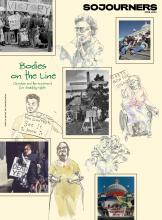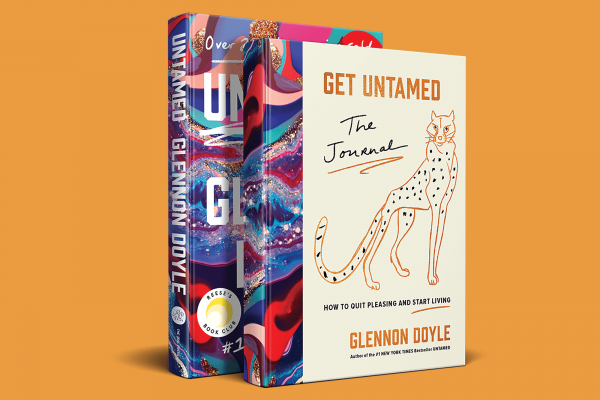WHEN I PICKED up Get Untamed—a journal based on Glennon Doyle’s best-selling memoir Untamed—at a secondhand bookstore, I was, as the kids say, down bad. Real bad. A year of overscheduling, overcommitting, and underhydrating had turned me into the caretaker of a creative and existential abyss. In that bookstore, I was reaching for more than a how-to book. I was reaching for a lifeline. And I found one—just not in the way I expected.
Doyle emerged onto the nonfiction scene with Carry On, Warrior in 2013, followed by Love Warrior in 2016. The latter book was raw and vulnerable, detailing the dissolution and resurrection of Doyle’s first marriage. Acclaimed by Oprah, Brené Brown, and Elizabeth Gilbert, Love Warrior celebrated love’s ability to overcome all obstacles—from addiction to internalized misogyny—in a marriage. Then Doyle met retired professional soccer player Abby Wambach. Doyle and her husband divorced. Now Doyle and Wambach are, by all accounts, happily married. The events leading to this form the basis for Untamed.
Read the Full Article

